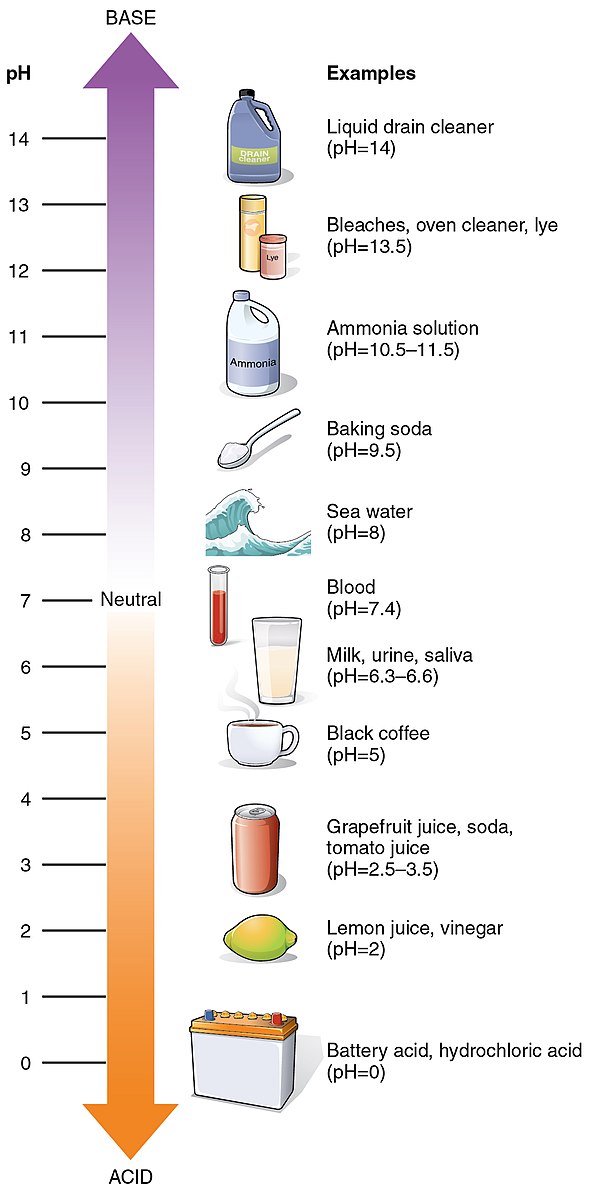The ideal pH for water used in germination is around 6.5, as this allows plants to assimilate nutrients most effectively. Adjusting the pH of water is crucial for successful seed germination, as pH levels can impact the availability of essential nutrients and lead to various deficiencies if not properly managed.
Understanding the Importance of pH in Germination
The pH of water used for germination plays a crucial role in the overall health and development of plants. Most plants, including cannabis, are adapted to a specific pH range in the soil or water, and a pH around 6.5 is generally considered the optimal range for effective nutrient uptake.
When the pH of water falls below 6.0, it can trigger a deficiency of calcium, which is essential for root growth and development. Conversely, a pH above 7.0 can cause a deficiency in iron, leading to symptoms such as burnt root tips, black spots on leaves, chlorotic leaves, and yellowing of veins.
Adjusting the pH of Water for Germination
 Image source: OpenStax College
Image source: OpenStax College
To ensure the ideal pH for germination, you can use various methods to adjust the pH of your water. Here are some common techniques:
Using Vinegar to Reduce pH
Vinegar is a simple and effective way to lower the pH of water. By adding a small amount of vinegar to your water, you can gradually decrease the pH to the desired level around 6.5.
Utilizing pH UP and pH DOWN Solutions
Commercial pH UP and pH DOWN solutions are specifically designed to adjust the pH of water. These solutions contain concentrated acids or bases that can be added to the water to raise or lower the pH as needed.
Checking Water Quality
It’s important to note that tap water and well water can be contaminated with toxic levels of minerals, which can affect the pH and overall quality of the water. Before using water for germination, it’s crucial to test the water quality and ensure that it is free from any harmful contaminants.
Testing and Calibrating pH
To accurately measure the pH of your water, you can use a variety of tools, including:
Liquid pH Testers
Liquid pH testers are often more reliable than electronic pH meters, as they provide a visual indication of the water’s pH level. These testers typically involve adding a few drops of a pH-sensitive solution to a sample of water and comparing the resulting color to a provided chart.
Electronic pH Meters
Electronic pH meters are another option for testing the pH of your water. These devices provide a digital readout of the pH level and can be more convenient to use than liquid testers. However, it’s important to calibrate the meter regularly using pH 4 and pH 7 calibration fluids, as well as a simple thermostat.
The Impact of pH on Nutrient Availability
The pH of water can also affect the availability of nutrients to plants during germination. Studies have shown that certain nutrients, such as nitrogenous compounds, can increase the percentage and rate of germination in some plant species, while high pH levels can negatively impact the germination rate.
Additionally, the interaction between nutrients and pH can affect various germination traits and seedling growth, highlighting the importance of maintaining the ideal pH range for optimal plant development.
Conclusion
In summary, the ideal pH for water used in germination is around 6.5, as this allows plants to assimilate nutrients most effectively. Adjusting the pH of your water, whether through the use of vinegar, pH UP and pH DOWN solutions, or by testing and calibrating your water quality, is crucial for successful seed germination and plant growth.
By understanding the importance of pH in germination and taking the necessary steps to maintain the ideal conditions, you can ensure that your plants get the best possible start in life, setting them up for a healthy and thriving future.
References:
– Mandala Seeds – Water and pH
– PubMed – The effect of pH on seed germination of three herbaceous species
– Nature – Seed germination and seedling growth of plants in response to changes in pH and nutrient availability
